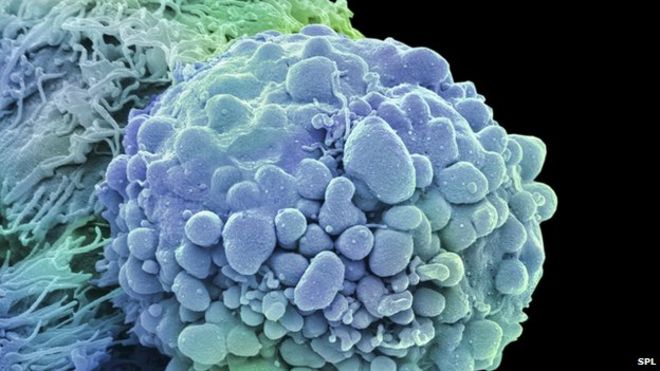
It may be possible to "soften-up" cancers before hitting them with chemotherapy drugs, researchers suggest.
A study, published in the Cancer Cell, uncovered how tumours can become resistant to commonly used drugs.
The University of Manchester team suggest drugs already in development may be able to counter this resistance to make chemotherapy more effective.
The approach has not yet been tested in people.
The team were looking at a class of drugs called taxanes, which are used to treat a range of cancers including breast and ovarian.
The research group at the University of Manchester were trying to determine how taxanes work.
By studying cancerous cells growing in the laboratory they were able to show how the class of drugs trigger cancer cells to kill themselves.
Resistance
But at the same time they discovered a key difference between cancers that were susceptible to the drugs and those which were inherently resistant, or later developed resistance.
The found high levels of one protein, known as Bcl-xL, in those cells that were resisting treatment.
But drugs are in development which can neutralise Bcl-xL's effects.
One of the researchers, Prof Stephen Taylor, told the BBC News website: "Potentially combining this with taxanes you could take resistant [cancers] and make them sensitive.
"These new inhibitors would essentially soften-up the cancer cells so when they are treated they are more likely to die."
The team want to test their approach on samples of a patient's cancer as well as in animals studies.
One concern will be whether making cancers more vulnerable to chemotherapy would also make healthy tissue more vulnerable and increase the risks of side effects.
Dr Emma Smith, senior science information officer at Cancer Research UK, said: "In cases where patients don't benefit from taxane-based chemotherapy, doctors could add drugs that target Bcl-xL to overcome cancer's defences.
"It's still early days for this research but, if the results are confirmed in clinical trials, it has the potential to improve treatment for thousands of cancer patients."













0 comments:
Post a Comment